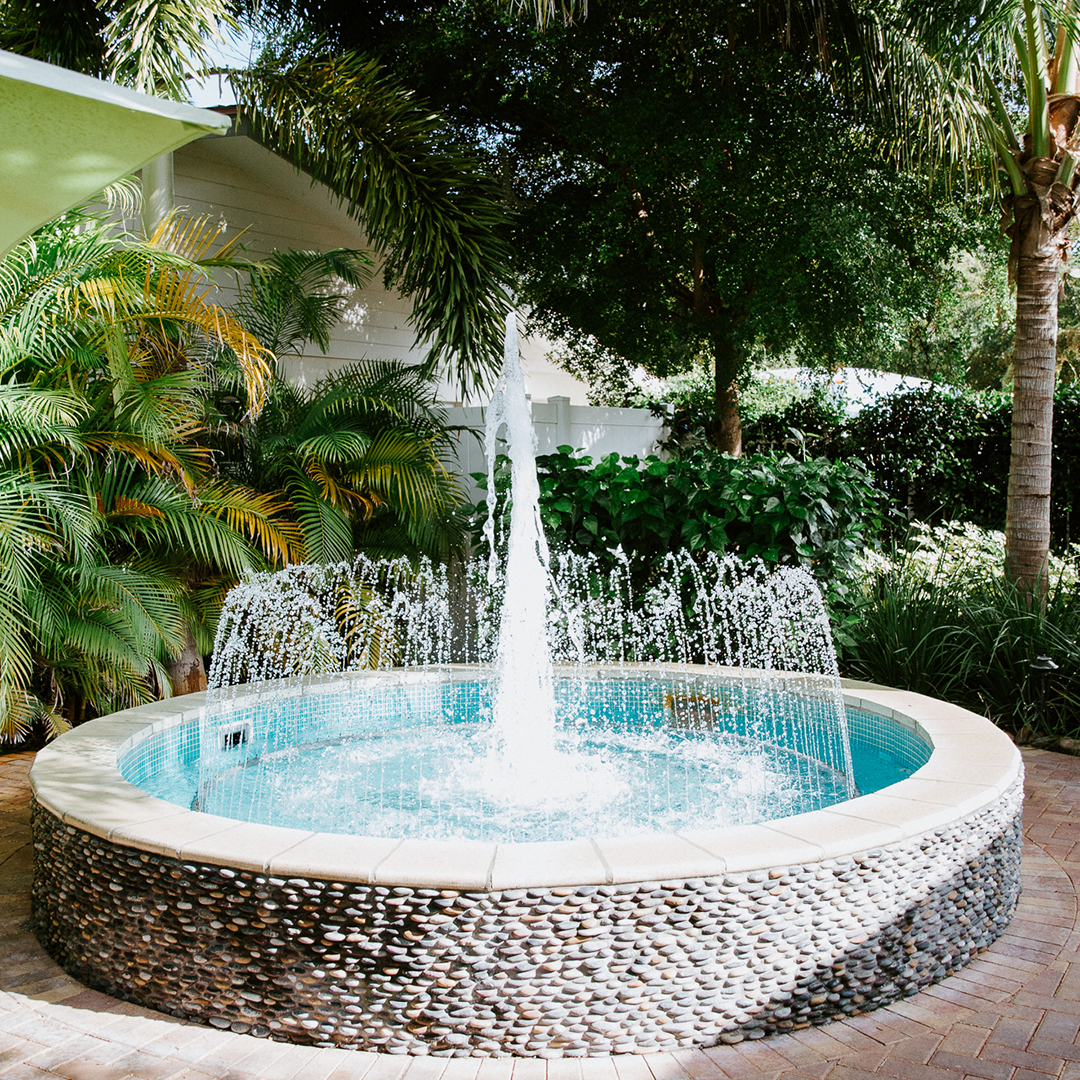When winter blankets most parts of the country with snow and freezing temperatures, Florida remains comfortably warm, providing a respite for seniors in assisted living facilities. Our consistent climate ensures that residents don’t have to grapple with the challenges of harsh winters, and Florida’s winter environment opens up a plethora of outdoor activities, allowing residents to stay active and engaged. The combination of these factors makes Florida not just a popular winter destination but also a preferred choice for seniors seeking comfort, health, and engagement during the colder months.

Consistent Comfortable Temperatures
Florida’s winters are characterized by their consistently mild temperatures, and while this provides many tangible benefits (that we will touch upon soon), there is one key benefit to keep in mind – Florida winter weather just feels good. Seniors can go about their daily routines without significant lifestyle changes while enjoying what is often room-temperature weather. You can stay warm and content without having to bundle up and hide next to a fire or heater. This pleasant weather also encourages more frequent outdoor gatherings, community events, and social interactions, as everyone can easily enjoy their time outside comfortably.
Enhanced Outdoor Activity Opportunities
The beauty of Florida’s warm winters is that they allow for continued outdoor activities, even in what is traditionally considered the “colder” season. Assisted living facilities can offer a variety of outdoor engagements, from leisurely walks in the garden to therapeutic gardening sessions where residents can plant, nurture, and enjoy the blooms. Outdoor engagements play a pivotal role in the physical and mental health of seniors, so the opportunity to soak in natural sunlight, breathe fresh air, and engage in physical activity contributes to better mood, improved mobility, and overall enhanced quality of life.
Reduced Seasonal Affective Disorder (SAD) Risks
Seasonal Affective Disorder, commonly known as SAD, is a type of seasonal depression that pops up in the fall and winter months when daylight becomes scarce. One of the primary triggers for SAD is reduced exposure to sunlight, which can mess with the body’s internal clock and cause depressive episodes. Florida’s warm winters, abundant in sunshine, offer a natural counter to this. With longer daylight hours and the opportunity for residents to spend more time outdoors, the chances of developing or experiencing exacerbated symptoms of SAD are significantly diminished. Consistent exposure to natural light helps regulate sleep patterns, mood, and serotonin levels, acting as a protective factor against this seasonal depression.
Lower Risk of Cold-Related Illnesses
Cold weather, especially when accompanied by fluctuations in temperature, can make individuals more susceptible to certain illnesses. The flu, pneumonia, and bronchitis are just a few ailments that see a spike during colder seasons. Seniors, with their often-compromised immune systems, are particularly vulnerable. In Florida’s milder climate, the risks associated with these cold-induced illnesses are notably reduced. The warmer temperatures mean residents are less likely to be confined indoors in close quarters, which often facilitates the spread of viruses. Moreover, the consistent warmth supports a healthier respiratory system, reducing the chances of complications arising from cold-induced respiratory conditions.
Easier Mobility and Safety
One of the often-overlooked advantages of Florida’s warm winters is the absence of snow and ice on pathways and roads. In many parts of the country, icy conditions pose a significant risk for seniors, leading to slips, falls, and potential injuries. Such accidents can have long-term consequences for older adults, from fractures to reduced mobility. Consistently clear pathways mean that residents of assisted living facilities can move about with greater confidence and independence.
Economic Benefits for Residents
Living in a region with cold winters often comes with increased expenses related to heating and winter maintenance. For assisted living facilities, these costs can translate to higher fees for residents. A mild winter climate means less reliance on heating systems, leading to significant energy savings for Florida facilities and residents. Additionally, there’s no need for expenditures related to snow removal or winter-specific maintenance. These savings can have a direct impact on the overall cost of living for residents, making Florida a comfortable and economical choice.
A Banyan Residence is an assisted living and memory care center located in Venice, Florida.
